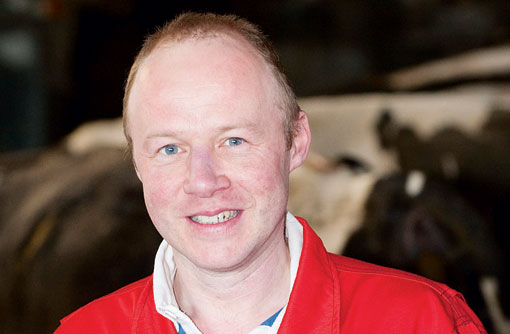Dairy farmer Steve Brown gives his views on milk price

Farmer Focus livestock writer Steve Brown sets out how he’d tackle the milk price crisis that’s gripped the dairy industry.
Steve Brown
County Durham
The current milk price situation is nothing new, and last time when things got serious, Farmers For Action and the Women’s Institute got involved and some improvements were made. Now it’s the same again which means the people negotiating farmgate prices are not doing a great job for milk producers.
This is not a personal dig at anyone’s efforts, merely an observation of the anger at the price we receive, and the subsequent protests. We have umpteen boards and groups supposedly acting for us, but they are obviously not succeeding, despite their remits – see the websites for DairyCo, Dairy UK, Dairy Council, various producer/processor groups for the details.
I would tackle the situation with a fresh approach, as follows:
The public is largely behind the British milk producer and would gladly pay more for their milk if it went to the farmer. The message we need to put across, via the media, and not just through another industry get together, is who gets what from the money spent on a pint of milk in the shop. The public need to be shown a lot more of those illustrative bottle pictures and not just on Farmers Weekly posters and stickers, but motorway billboards, and adverts in national papers.
We should strike while the iron is hot; television needs to highlight the situation, (with people like Jimmy Doherty and Jamie Oliver highlighting the crisis), and an independent industry expert should be involved to speak to the media on behalf of farmers.
The public needs educating in basic terms of the supply chain of farmer/processor/retailer, and the work involved at each stage. Then compare this to who gets what and the imbalance is obvious – support is swayed to the start of the chain and the tail is wagging the dog no longer.
The minority of non-farming support seems to be that other industry (car, coal, manufacturing) has suffered, why is dairy different? Quite simply, while importing liquid milk is more viable than it once was, if our industry is no longer self sufficient the best the public can hope for is UHT milk from abroad, which many have tasted and do not like. If we rely on imports then the retailers have gone full circle and they are in the hands of their suppliers.
Other industries were faced with cheaper imports and could not compete; in our case the retailers seem intent on making the UK rely on more expensive imports simply by ruining the British dairy industry.
I have made no mention of Actual Milk Price Equivalent, Intervention Milk Price Equivalent, skimmed milk powder, commodities and others because it is a simple explanation of the situation that will guarantee the public support. I would invite the processors to put forward their comments, and hope they dare expose their situation of being in the hands of the milk buyers, and would invite the supermarkets to justify themselves to give a balanced view, which may be a struggle, on their behalf. If nothing else it will expose the gulf between the price of the have and have nots.
Who will pay for this? I believe every British dairy farmer would pay for representation if it gave results, but we object to paying for a service that doesn’t deliver. We all pay a levy to DairyCo of which none has been used in advertising; surely some of their budget should be redirected, to fund ideas such as these; if we have no future they will have no future.
Likewise Dairy UK should be the link between processor and retailer. Talk of voluntary codes of practice and producer organisations (we have one, again DairyCo), are only viable if we shake up the current situation of “too many chiefs” and move to a scenario of “less is more.”
The money proposed from government could go to DairyCo rather than a new producer organisation, and how about an “Ofmilk” industry watchdog.
With the public support, we turn our attention to the long term, which is not to be in this situation again. Once again we should put ourselves in the shoes of the consumer; milk is purchased regardless, so the emphasis should be on one big Union Flag logo indicating British Milk ensuring, like Fairtrade, the farmer is getting his fair share, and indicating farm assured milk, which itself should command a price bonus, for the work involved. This label, solely dedicated to quality British milk sold fairly would be more meaningful to the public than the Red Tractor, and the processor or retailer label should be secondary. Price negotiation, and media representation should be independent, by experts in these fields, but with guidance by farmer representation.
Once again DairyCo could redirect funds towards this instead of say research and development. The scenario we all deserve is a fair price for all, and with the public support I am convinced the balance of power can be readdressed. Many of these thoughts have been discussed before, and I stress again this is a simplified view, but over complication of the industry structure has left us where we are today.
Steve Brown farms 200ha in County Durham, in partnership with his parents. The family’s 125-cow herd is run at Hopper House, with a 200-ewe flock and replacements on grass at a separate unit.
Read more about milk price cuts on our dedicated page
Visit our Farmer Focus landing page to read more of their thoughts
